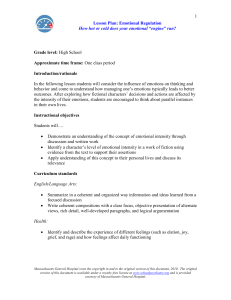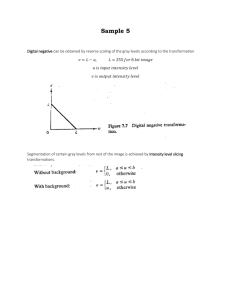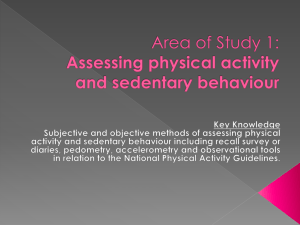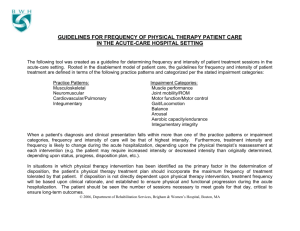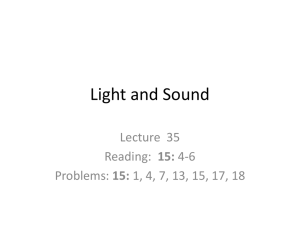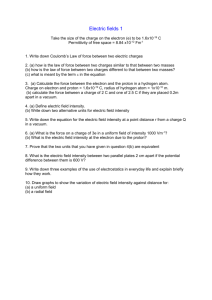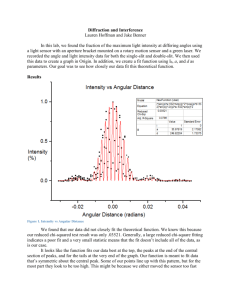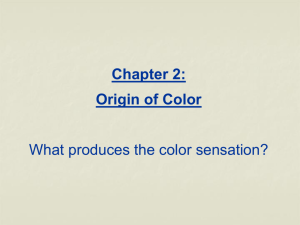For this assignment, you will analyze the emotional intensity of a
advertisement
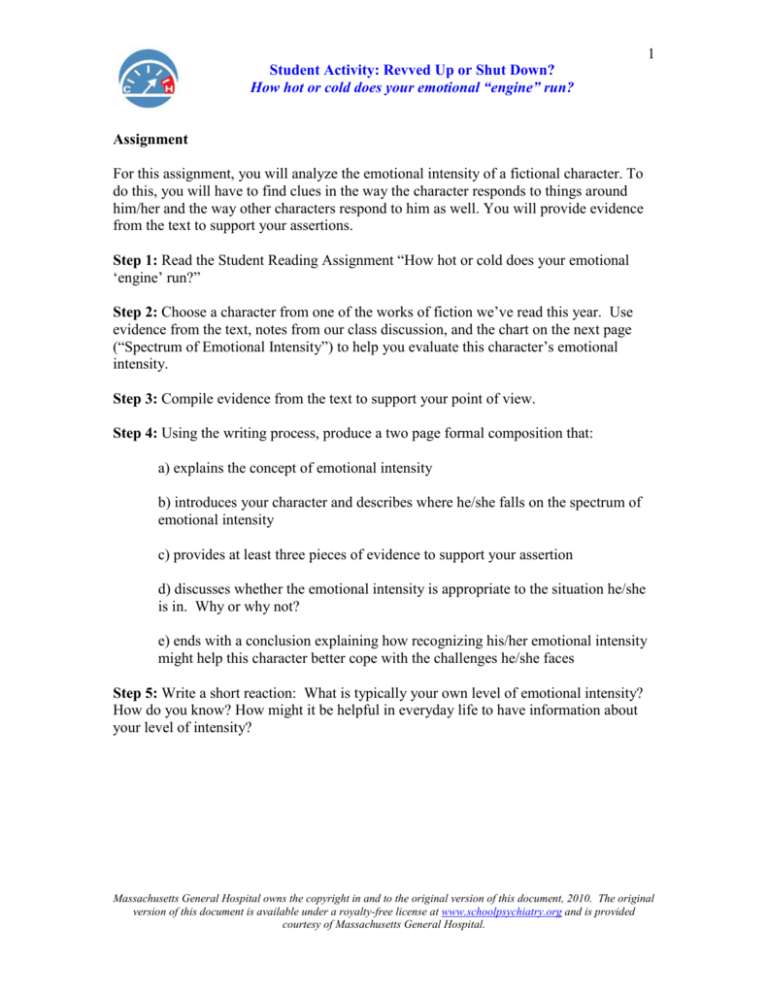
1 Student Activity: Revved Up or Shut Down? How hot or cold does your emotional “engine” run? Assignment For this assignment, you will analyze the emotional intensity of a fictional character. To do this, you will have to find clues in the way the character responds to things around him/her and the way other characters respond to him as well. You will provide evidence from the text to support your assertions. Step 1: Read the Student Reading Assignment “How hot or cold does your emotional ‘engine’ run?” Step 2: Choose a character from one of the works of fiction we’ve read this year. Use evidence from the text, notes from our class discussion, and the chart on the next page (“Spectrum of Emotional Intensity”) to help you evaluate this character’s emotional intensity. Step 3: Compile evidence from the text to support your point of view. Step 4: Using the writing process, produce a two page formal composition that: a) explains the concept of emotional intensity b) introduces your character and describes where he/she falls on the spectrum of emotional intensity c) provides at least three pieces of evidence to support your assertion d) discusses whether the emotional intensity is appropriate to the situation he/she is in. Why or why not? e) ends with a conclusion explaining how recognizing his/her emotional intensity might help this character better cope with the challenges he/she faces Step 5: Write a short reaction: What is typically your own level of emotional intensity? How do you know? How might it be helpful in everyday life to have information about your level of intensity? Massachusetts General Hospital owns the copyright in and to the original version of this document, 2010. The original version of this document is available under a royalty-free license at www.schoolpsychiatry.org and is provided courtesy of Massachusetts General Hospital. 2 Student Activity: Revved Up or Shut Down? How hot or cold does your emotional “engine” run? Spectrum of Emotional Intensity Emotion Emotionally shut down Emotionally revved up Balanced Anxiety By denying the possibility that something could go wrong, person may lack good judgment. Unable to distinguish between true danger and personal fears, may be isolated, on the sidelines. Able to evaluate situations and decide what steps are necessary to reduce risks. Anger Passive, may have difficulty having needs met. May bully and alienate others. May say or do things that will be regretted later. Can consciously decide when to be assertive and when to “let things go.” Sadness Unacknowledged feelings can build up and break through in unexpected ways. May lead to loss of ability to carry out daily functions, leading to further sadness and withdrawal. Can feel sadness when appropriate, but also feels other emotions. Knows strategies for taking care of self, including doing enjoyable activities. Happiness Difficulty enjoying successes, feels they are temporary and/or not due to own efforts. May alienate others by denying/avoiding problems or failing to appreciate others’ struggles and perspectives. Takes pleasure in own successes and successes of others, acknowledges and learns from challenges along the way. Massachusetts General Hospital owns the copyright in and to the original version of this document, 2010. The original version of this document is available under a royalty-free license at www.schoolpsychiatry.org and is provided courtesy of Massachusetts General Hospital.
